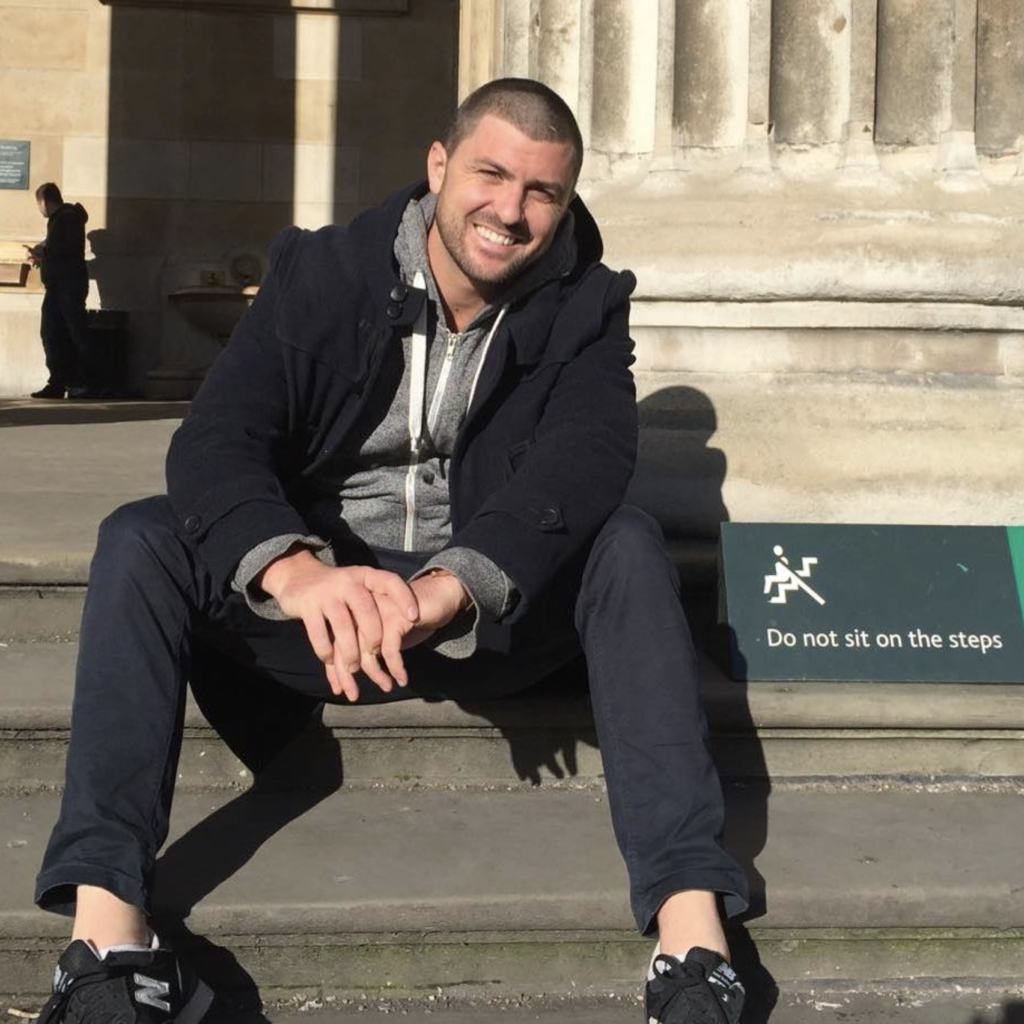Jack Langworthy is the CEO and founder of NINAYO and CEO and co-founder of Maua Mazuri, two startups focused on East African agriculture. Prior to founding these companies, Jack graduated with an MBA from Copenhagen Business School and shares how the skills and knowledge from this course impacted his career
Can you tell us a little bit about yourself and your career to date?
I’m a big believer in business solutions to poverty, and that’s why I’ve built my career developing high impact startups in East African agriculture.
I was born in Los Angeles, but I’ve been lucky to live all over the globe, moving for work or education. I came to Africa as a Peace Corps Volunteer, living in a hut for my first two years in a rural Swahili village in southern Tanzania. I hated the place during those first six months and couldn’t wait to get back to LA. Now, 13 years later, I live happily in Kilimanjaro, Tanzania, my wife’s tribal home, where we have a young boy and a girl. Life is good.
Explain your current roles.
I’m the CEO of a tissue culture seedling laboratory and nursery network called Maua Mazuri. We invested in a state-of-the-art laboratory and it’s all-female run, which is important to us for providing job opportunities for women in science. The lab is non-GMO and generates superior planting material for more bountiful harvests in the banana and potato sector within East African agriculture.
The role of a CEO involves three main activities: setting the mission, hiring the right team, and ensuring there are sufficient finances to reach that mission. At this point in our company’s growth, we are transitioning from a startup to a scaled business. As such, I have a few extra roles such as establishing systems to help us scale into new products and markets. We are also in the midst of exploring a fundraise, which is its own job in itself.
Where and when did you achieve your MBA?
I did my MBA at the Copenhagen Business School in 2012-13.

Why did you want to study for an MBA in the first instance? And why did you choose to do an MBA at this particular School?
I know this doesn’t sound politically correct – but I wanted to earn more money. By age 27, I’d never made over $30k per year, as I’d mostly been volunteering or working for small social enterprises in Tanzania. I had spent so much time around severe poverty, that I developed a healthy respect for prosperity – no one should take it for granted. I looked at a variety of schools, in America and in Europe, and chose the Copenhagen MBA in large part because it was a great return on investment. As a one-year programme, the opportunity cost is lower. And at the time, according to a Wall Street Journal article, the average income of a graduate was around $115K per year. I compared that to more famous and Ivy League schools, which are two years and twice as expensive, and CBS just made more sense.
Furthermore, the school is a small international programme. I don’t like being just a number. Being a member of a community is important to me, and building an international business network was what I was after.
What is the most interesting thing you learnt from your MBA?
An interesting item learned in the MBA, came from a book talk I attended. Unfortunately, I don’t remember the author or book, but it was something like, ‘How to become a CEO’. I was curious, and then immensely disappointed by the answer being, ‘you become a CEO to become a CEO’. That was not what I wanted to hear – it made no sense. Flash forward a few years and I became a self-appointed CEO of my startup NINAYO. From there I was appointed the CEO of Maua Mazuri. The books maddening premise came true!
What were some of the challenges you faced when studying for an MBA?
I was making the move into a new country, industry, and income class. Usually, it’s advised to do these things one at a time, as those are three big jumps and not done easily. Therefore, I started the job-hunting process about half way through, and I’m glad I did. At the time, Europe was recovering from a financial crash, and the future was uncertain – as it always is. But I went through many iterations on my CV, defining my passion, my skillset and so forth. Doing that work on top of the full-time MBA was a hefty workload.
How has the MBA made a difference to your career path and leadership journey?
I remember when I was closing my pitch for NINAYO, to the cofounder of Uber and FourSquare, on the 27th floor of a downtown San Francisco high rise. The final question from the Expa Labs committee was, ‘And you have your MBA right?’
‘Yep,’ I replied, ‘Copenhagen Business School’.
‘Nice, Copenhagen’s cool.’
And then I got a call the next day that we had reached a deal. It was great. Expa Labs investing in NINAYO helped me bring attention to the potential of Tanzanian agriculture on a whole new level. So, I have to say that the MBA opened doors for me and my mission. People are more likely to trust someone to run a business who has studied the fundamentals of business.
In what interesting ways have you taken what you have learnt in your MBA into the organisation for which you work?
The MBA gave me the broad swath of business knowledge I needed for my future career as an executive building startups. A general grasp of accounting, organisational management, economics, marketing and so on is exactly the right foundation. At a startup, founders need to be able to build all of these systems, and then hire the expertise to scale them. A general knowledge was key.
What advice would you give to someone who is thinking about studying for an MBA?
An MBA is a stepping stone – and an expensive one. I would recommend envisioning where you would like to be in three years, and then look at which MBA programme can best take you there. And of course, it’s ok if you learn something new and change course along the way. I certainly did. But envisioning the MBA as a stepping stone will allow you to go the furthest with that degree.
What are the next steps for you on your career journey?
Scaling Maua Mazuri is an incredible opportunity. The need for higher yielding planting material in East Africa is truly extreme. We are going to be changing the lives of so many East African farmers – in many instances multiplying the income levels of smallholder farmers.



